Locally sourced produce offers a huge potential
Can the promise of better food and a better future for local shops and suppliers really break the nation's habit of driving miles to stock up on cheap, bland, additive-riddled supermarket fodder? This may be the year we find out.
In 2007 the public became aware of the plight of British farmers, pushed to the point of extinction by the demands of the corporate giants. They heard and accepted the environmental argument for reducing food miles and realised that food with a farm-to-fork history behind it is not only better to eat, but better for you, too.
And while a large proportion of the population will continue to buy on price, more and more are reading the labels and looking at the provenance of the goods they buy.
Recent IGD research revealed that a significant number of people would be prepared to pay more for local products, with 55% saying local sourcing was very or quite important to them.
Independent retailers are well placed to take the lead here, as supermarket chains don't have the flexibility for true local sourcing, but there are issues to resolve. Customers will demand consistency, and while they may pay more for quality, they won't tolerate poor supply. Producers, meanwhile, can be nervous of dealing with smaller retail operations. And for symbol group members, there's an extra issue - what happens when local sourcing leads to a drop-off in your order through central distribution?
So it's up to the progressive retailer to seize the opportunity. Talk to producers - show them how the relationship between local shop and local supplier can benefit both. Get to know a product's provenance, ingredients and history.
Local is a much-abused term. Last summer Tesco tried to convince consumers that milk produced 150 miles away was 'local'. For all their power, the giant retailers can't replicate the offer of genuine local stores supporting their regional suppliers - and that's why this is an area of real optimism for the year ahead.
"We have been actively sourcing regional food and drink since 2003 and we've built relationships with regional food marketing organisations such as East Midlands Fine Foods and Tastes of Anglia, and eventually hope to be able to offer locally sourced food across all Budgens stores.
"Budgens' independent retailers are obviously an important part of that process, bringing in suppliers from their local areas, with some of our retailers stocking products from more than 50 different local suppliers.
"We are giving smaller, specialist producers a wider commercial platform while also supporting local economies.
"We also have a clear British sourcing policy, of which meat and produce form a big part. All of Budgens' own label fresh meat is British, we source UK-produced fruits and vegetables wherever possible, and we were the first retailer to introduce the Red Tractor Promises Scheme, which assures customers that any meat carrying the Red Tractor logo comes from a British source."
"There's a huge future for local produce in our business. We've identified 150 suppliers in the borough of Haringey alone - we demonstrate how local we
buy by putting food miles on the packaging.
"There are some issues to work out when starting a relationship with a local supplier, such as the barcoding, packaging, labelling and supply; the solution I always suggest is to work through a hub, with someone providing distribution for a number of local producers.
"We also support small producers such as Cooks ready meals and Paxton & Whitfield cheeses, which customers say they used to have to travel up to the West End to buy."
Can the promise of better food and a better future for local shops and suppliers really break the nation's habit of driving miles to stock up on cheap, bland, additive-riddled supermarket fodder? This may be the year we find out.
In 2007 the public became aware of the plight of British farmers, pushed to the point of extinction by the demands of the corporate giants. They heard and accepted the environmental argument for reducing food miles and realised that food with a farm-to-fork history behind it is not only better to eat, but better for you, too.
And while a large proportion of the population will continue to buy on price, more and more are reading the labels and looking at the provenance of the goods they buy.
Recent IGD research revealed that a significant number of people would be prepared to pay more for local products, with 55% saying local sourcing was very or quite important to them.
Independent retailers are well placed to take the lead here, as supermarket chains don't have the flexibility for true local sourcing, but there are issues to resolve. Customers will demand consistency, and while they may pay more for quality, they won't tolerate poor supply. Producers, meanwhile, can be nervous of dealing with smaller retail operations. And for symbol group members, there's an extra issue - what happens when local sourcing leads to a drop-off in your order through central distribution?
So it's up to the progressive retailer to seize the opportunity. Talk to producers - show them how the relationship between local shop and local supplier can benefit both. Get to know a product's provenance, ingredients and history.
Local is a much-abused term. Last summer Tesco tried to convince consumers that milk produced 150 miles away was 'local'. For all their power, the giant retailers can't replicate the offer of genuine local stores supporting their regional suppliers - and that's why this is an area of real optimism for the year ahead.
Barry Williams, Trading Director, Musgrave Retail Partners
"We have been actively sourcing regional food and drink since 2003 and we've built relationships with regional food marketing organisations such as East Midlands Fine Foods and Tastes of Anglia, and eventually hope to be able to offer locally sourced food across all Budgens stores.
"Budgens' independent retailers are obviously an important part of that process, bringing in suppliers from their local areas, with some of our retailers stocking products from more than 50 different local suppliers.
"We are giving smaller, specialist producers a wider commercial platform while also supporting local economies.
"We also have a clear British sourcing policy, of which meat and produce form a big part. All of Budgens' own label fresh meat is British, we source UK-produced fruits and vegetables wherever possible, and we were the first retailer to introduce the Red Tractor Promises Scheme, which assures customers that any meat carrying the Red Tractor logo comes from a British source."
Andrew Thornton, Budgens Crouch End, London
"There's a huge future for local produce in our business. We've identified 150 suppliers in the borough of Haringey alone - we demonstrate how local we
buy by putting food miles on the packaging.
"There are some issues to work out when starting a relationship with a local supplier, such as the barcoding, packaging, labelling and supply; the solution I always suggest is to work through a hub, with someone providing distribution for a number of local producers.
"We also support small producers such as Cooks ready meals and Paxton & Whitfield cheeses, which customers say they used to have to travel up to the West End to buy."



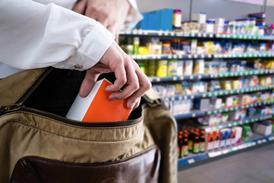




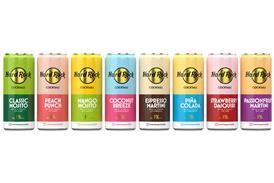

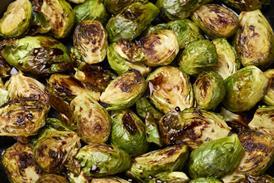
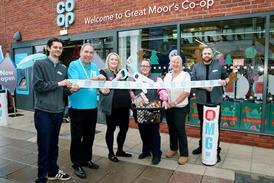
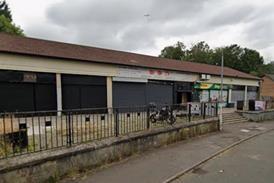
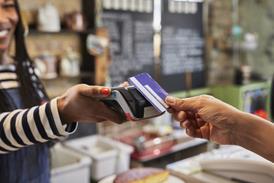











No comments yet